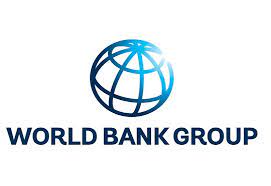As part of a competition backed by the World Bank, ten young Fintech businesses based in South Africa have been given awards for the solutions, they developed to close the gap in financial access for communities that have been underserved.
The Fintech Challenge was an initiative that was a component of the ecosystem development projects that were supported by the World Bank as a part of the Southern Africa Innovation Bridge Portal. The goal of the Fintech Challenge was to crowd-source novel and meaningful methods to use the most recent advancements in fintech.
Read also: Africa leads global fintech growth with 32% CAGR, $65 billion by 2030
Why the Fintech Challenge was created
The purpose of the programme is to supply low-cost and appropriate savings and de-risking products for the low- and middle-income market as well as lending solutions for small and medium-sized businesses (SMEs). A recent awards ceremony granted a total of $50,000 to ten Southern African startups, each of whom will use the money to prepare their firms for potential investment.
Abela, Bento Technologies, Fintr, Moya Money, Sum1 Investments, and Thumeza are the six firms that were founded in South Africa and went on to win the competition. Chaperone and Prime Capital are the two companies that hail from Lesotho, while Ipachi Capital and FundRoof are the only ones from Botswana and Namibia, respectively.
Remarks from some executives
“The region’s most innovative and impactful fintech companies unveiled their solutions to enable greater financial access to the poor, after an eight-week investment readiness program which included masterclasses and mentoring,” said Marie Francoise Marie-Nellie, World Bank Country Director for Botswana, Eswatini, Lesotho, Namibia, and South Africa. “Of the 15 participating startups, 10 were awarded financing. These businesses are investment ready and now eager to engage further with interested investors.”
Top ten South African FinTech firms
There are over 982 South African FinTech firms. Here are the 10 most exciting
Affinity Health offers several health insurance plans. Health insurance plans include Day-to-Day, Hospital, Combined, Junior, and Senior. It covers unlimited, managed GP visits, general Day-to-Day medication, hospitalisation, chronic medication boosters, ICU, and accident cover.
Jumo offers mobile banking and consumer and commercial loans online. It lends to entrepreneurs and financial assets. Customise the loan amount, life cycle, and payback mechanism. Its AI-powered technology stack lets banks offer loans, savings, and insurance to previously inaccessible clientele.
Merchant payment processing. It sells NFC-enabled and hardware-based card machines, payment gateways, link-based payments, and more. Yoco App manages sales and performance. iOS and Android smartphones support applications.
Cryptocurrency trading app VALR. AI and machine learning verify trader identity. It securely buys, stores, and sells cryptocurrency.
Ozow provides merchant payment processing. It supports payment gateways, QR-based payments, invoice payments, link-based payments, and more. It allows credit/debit cards, bank transfers, and wallet payments online. OzowPIN confirms payments for banking transactions.
Capex trades capital market assets. Users can trade forex, indices, cryptocurrencies, bonds, ETFs, shares, and commodities. Daily Analyst rankings, sentiment research, news updates, market trends, and an economic calendar helps traders construct strategies. Broker partnerships are available. It works on iOS and Android.
Lulalend offers online business loans. It offers loans for merchandise, employing staff, marketing campaigns, equipment, renovations, opening new locations, managing cash flow, unexpected expenses, and receivables shortages. It scores loan applicants using its own algorithm.
Lula is a business-focused online bank. Freelancers, startups, SMEs, and others can open business accounts with deposits, business bank cards, payments, transfers, receive payments, savings, cash flow management, and more. It offers numerous business loans with a payback calculator and lets firms offer purchase now pay later finance to clients.
Peach Payments offers merchant payment gateways. Its product suite lets merchants accept payments on their website, mobile sites, and mobile apps with a cutting-edge payment solution. It has fraud-prevention measures.
AI-powered Naked offers usage-based auto insurance. A chatbot provides usage-based rates and prices. It provides roadside assistance, claims approval, and more. It has iOS and Android apps.
About World Bank
The World Bank was founded in 1944 to rebuild Europe and Japan. IBRD was its official name. It started with 38 members in 1946. Most nations belong nowadays.
Developing nations receive low-interest loans, credits, and grants. These fund education, health, public administration, infrastructure, financial and private sector development, agriculture, and environmental and natural resource management.
The World Bank invests in nations that support long-term growth and citizen needs. They help policymakers create stable, egalitarian, and efficient markets, institutions, and economies.
The World Bank is located in Washington DC, U.S. In 2022, the World Bank has a president, 25 executive directors, and 29 vice presidents. IDA has 174 members and IBRD 189.




